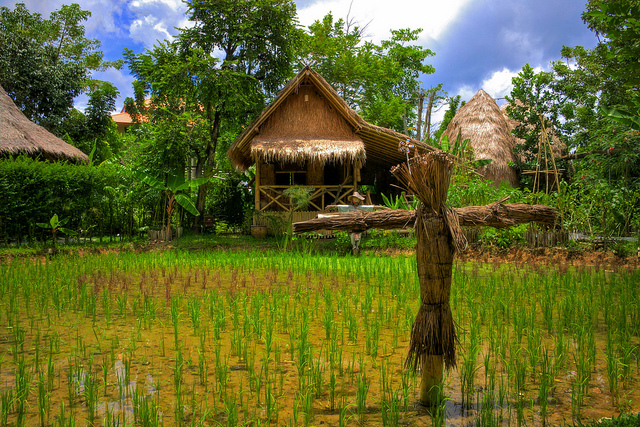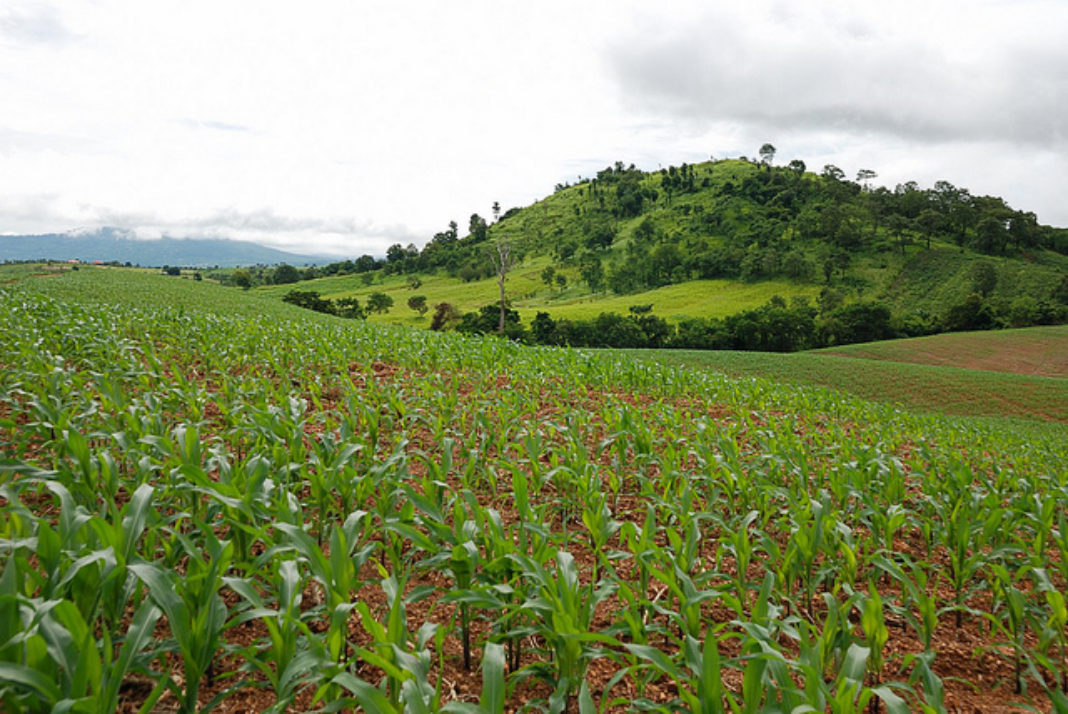Volunteering and traveling are possibly the two most rewarding activities a person can do.
They’re both educational, fulfilling and destructive to prejudices, ego, and the separation that disconnects humans from each other and the planet. Most travelers possess a powerful curiosity about the world, wishing to discover the world and learn something about themselves in the process.
Combining curiosity with the desire to give back to the world, voluntraveling is the best way to learn about ourselves and our planet, to make positive life-impacting contributions, and to add meaning to our adventures. From teaching young children to tilling land on a farm to clearing bait-trap lines in the rainforest, the world is full of volunteer opportunities for every taste in almost every country.
I first started voluntraveling in 2011 in New Zealand with an Eco-conscious volunteer program and have been hooked ever since. Working towards a common goal to benefit the New Zealand rainforest while being surrounded by like-minded people changed the way I saw the world and how I wanted to travel. In a world filled with consumerism and capitalism, it felt good to get out in nature and in rural communities and give back, planting seeds of hope and optimism in a soil ripe with opportunity.
[quote_left]More than agricultural work, permaculture revolves around building community and connectedness to our planet and people by cultivating respect and love.[/quote_left]
This year, my travels led me to Tacome Pai in the north of Thailand, three hours northwest of Chiang Mai. Tacome Pai is one of the few organic permaculture farms in Thailand, offering rustic accommodations in bamboo huts and three vegan meals a day for volunteers. The sprawling twenty acres of land are covered in fruit trees, rice paddies, bamboo and teak trees, set against the backdrop of the Pai valley lined with densely forested mountains.
I was immediately enamored by the beauty of the landscape: every shade of green imaginable colored the farm’s acreage while chickens, ducks, cats and dogs roamed freely, foraging for food or basking in the sunlight. We were greeted by a smiling Thai farmer, Sandot Sukkaew, and his mother, who was smiling even more than Sandot, and welcomed into the fold by the other volunteers. The warmth and joy exuded by the family and volunteers was tangible and contagious, confirming my hunch that we’d come to the right place.
Permaculture, by definition, is the development of agricultural ecosystems intended to be sustainable and self-sufficient, without the use of harmful pesticides and chemicals. Translation: growing food and plants the way nature intended with little human interference or manipulation, allowing nature to do most of the work.
[quote_right]Tacome Pai is one of the few organic permaculture farms in Thailand, offering rustic accommodations in bamboo huts and three vegan meals a day for volunteers.[/quote_right]
More than agricultural work, permaculture revolves around building community and connectedness to our planet and people by cultivating respect and love. A “new age” realm of thought, yet remarkably natural and instinctive, living as one with the earth is a part of our heritage and roots no matter how far removed from it we’ve become in today’s fast-paced city-centered society.

Learning to use a machete- life on the farm
Handling a machete, feeding the pigs and cooking in an open-air kitchen are all in a day’s work at Tacome Pai. I don’t know about you, but I have never used a machete for anything in my life, let alone chopping firewood! The farmers use a machete for just about everything: clearing walking paths through the brush, collecting fruits from the trees, and chopping firewood. Learning to use the machete was one of the most beneficial skills I learned on the farm. Each day was a new adventure, learning a new skill.
My first day, we tilled the rice paddies, chopped firewood (I still have all my fingers, thank goodness) and learned how to make fire and then cook dinner on said fire. Let me tell you, making a fire to cook rice over for an hour and a half is no small feat. I have never been so appreciative of kitchen appliances in my whole life after making a fire from scratch and keeping it alive for hours. Foraging the fresh vegetables each day before cooking also gave me a sense of greater connection to my meal, knowing that our love and dedication grew the food we were about to consume.
Work was from 6:30-8am and then 9am-12pm with our afternoons free to relax or head into Pai – probably my most favorite town ever. Some days work was labor intensive, like hauling bags of pig poo to a new garden site, and other days were lighter and fun, like snail diving in the swimming pond or dancing on the weeds in the rice paddies singing “we love you, rice!”. (Sandot believes love is an important growing ingredient for plants.)
Educational classes were held most days at 2:00pm with topics from mushroom harvesting to natural toilets to compost making, sometimes followed by a philosophical discussion on the state of the world or Sandot’s journey and mission in life. Full of encyclopedic knowledge, Sandot loves to spread awareness and would like to one day travel around the world, helping people start their own farms. One of the best ways to make the most of your stay on Tacome Pai is to follow Sandot around the farm, picking his brain as he loves curious pupils and will divulge his secrets till you’re full to the brim.
[quote_left]Foraging the fresh vegetables each day before cooking also gave me a sense of greater connection to my meal, knowing that our love and dedication grew the food we were about to consume.[/quote_left]
If you are looking for even more learning opportunities while on the farm, he offers a bamboo course for 400 baht, specializing in making cups, spoons, dishes, baskets, and meals out of bamboo. Yes, you can eat bamboo! Who knew? He also offers a two week permaculture course at 8000 baht for those interested in starting their own farm. In December, Tacome Pai throws a huge rice harvest festival with bands, arts and food for the local and international community to come and help harvest the rice fields.
How many of us can say we live a simple life in today’s world?
If you are looking to experience a slow, sweet, peaceful type of life, you’ve come to the right place. With nature at your door, you are free to feel the cool evening breeze against your cheek and awake to the rooster’s call with the sun cresting over the mountain range without the disturbance of noisy electronics or honking cars. Every day on the farm is serene and picturesque, taking the attention of your consciousness to each present moment. Besides the resolute serenity you’ll experience here, you will also learn about living in nature more than anywhere else.
Voluntraveling is the most affordable, enlightening and rewarding way to see the world. Giving back, making genuine connections with locals, and seeing off-the-beaten track places, are just a few reasons why voluntraveling is becoming the fastest growing method of experiencing new cultures and countries.
For more information on Tacome Pai, please visit the website www.tacomepai.com






